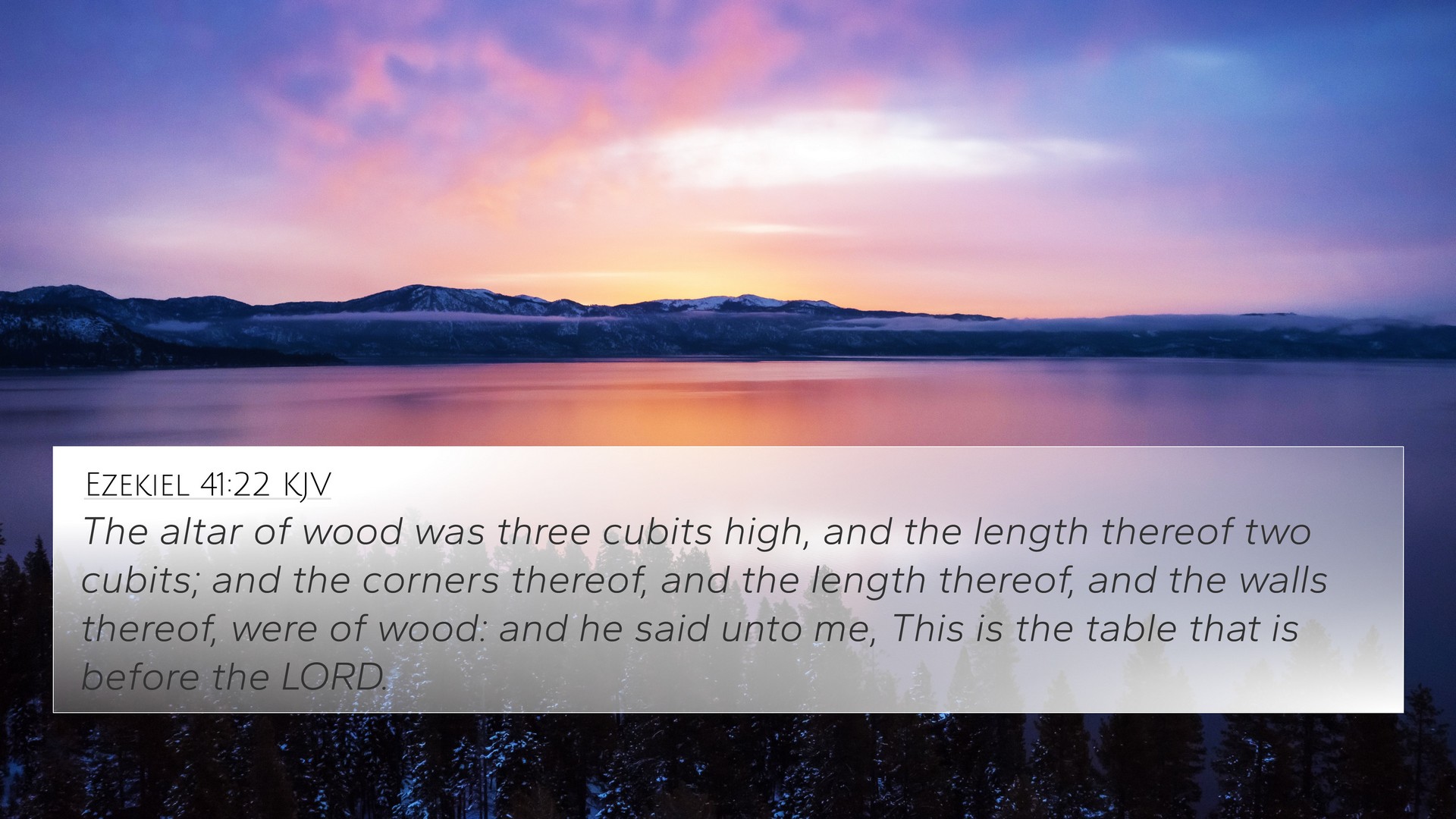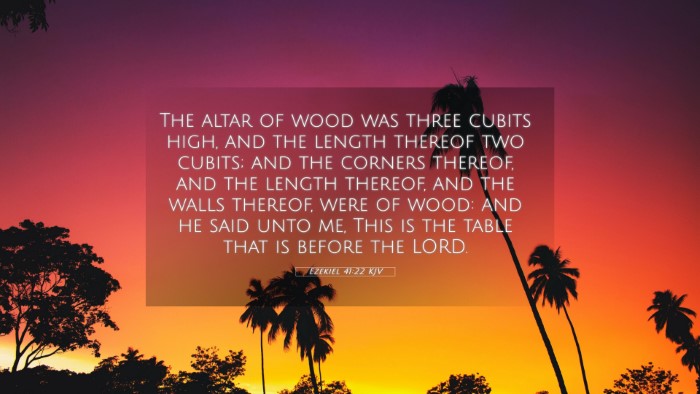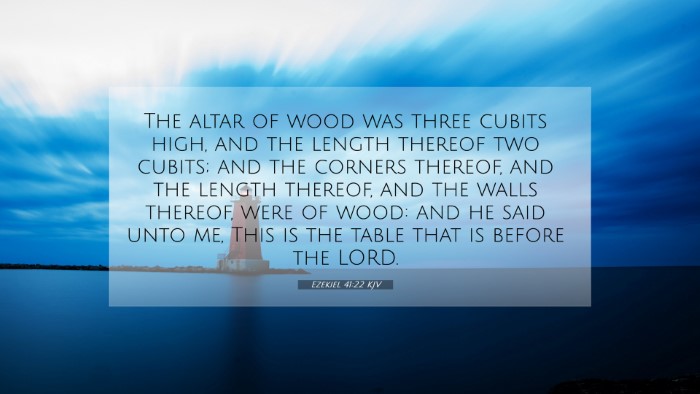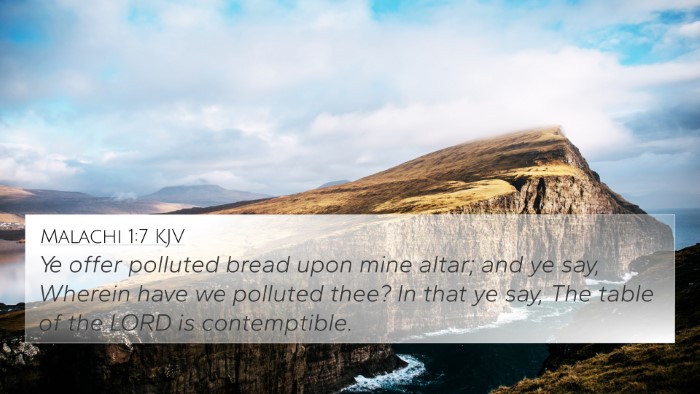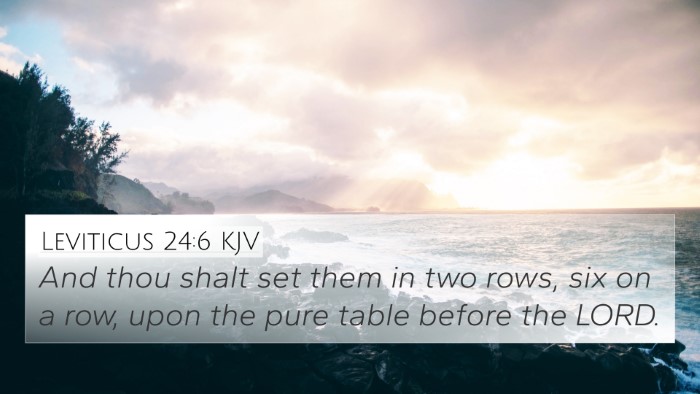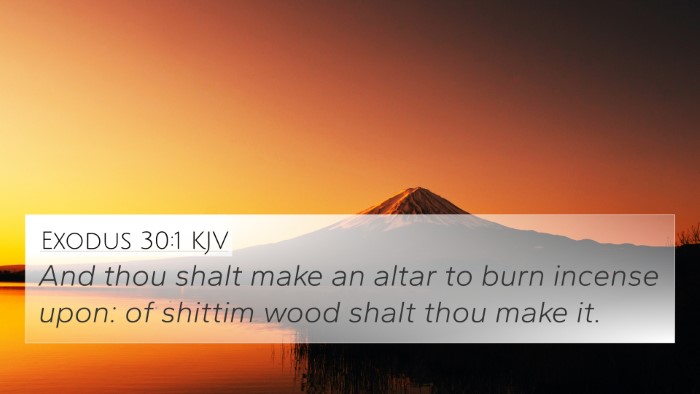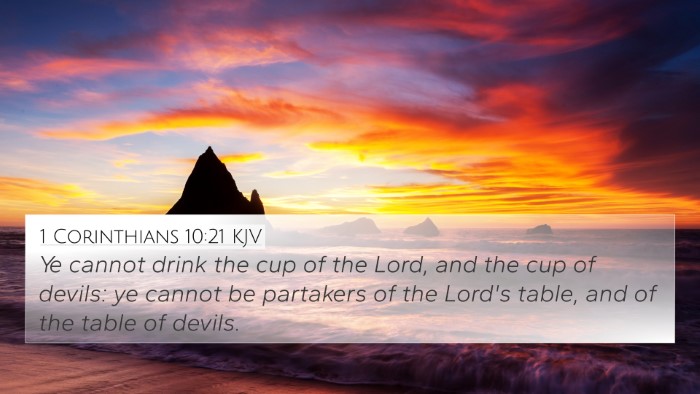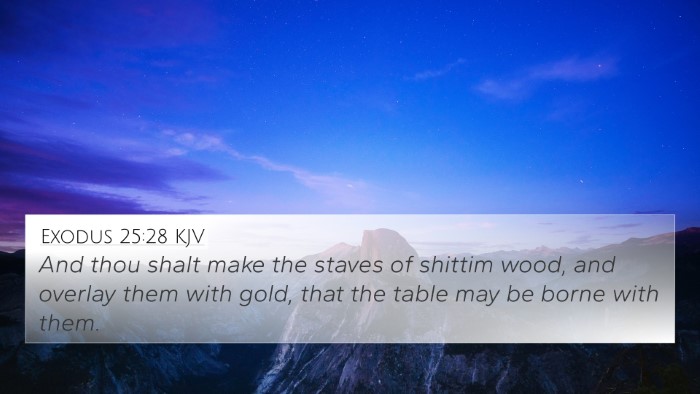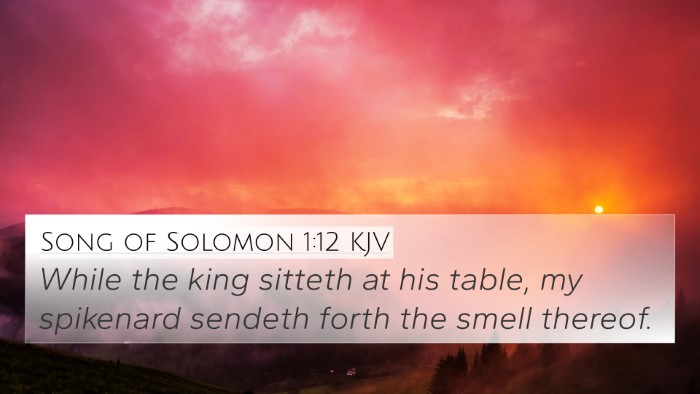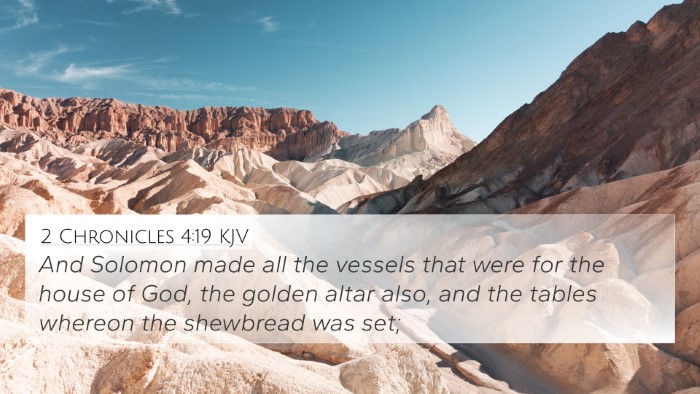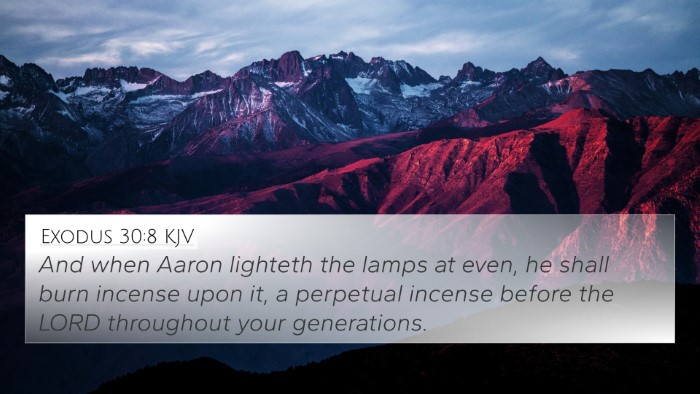Ezekiel 41:22 - Understanding the Divine Architecture
Bible Verse: Ezekiel 41:22 reads, "The altar was of wood, three cubits high, and two cubits long; and its corners, and the length thereof, and the walls thereof, were of wood: and he said unto me, This is the table that is before the Lord."
This verse describes the altar within the temple vision granted to Ezekiel, highlighting its wooden construction and dimensions. It symbolizes where God would meet His people.
Commentary Insights
The commentaries from Matthew Henry, Albert Barnes, and Adam Clarke provide rich insights into this verse, examining its theological implications and symbolism.
- Matthew Henry: Henry emphasizes the significance of the altar and its design. He interprets the altar as a symbol of God's presence and the place of worship. The use of wood signifies a relationship between the divine and human, suggesting a refuge for offerings and a sacred space where sins could be atoned.
- Albert Barnes: Barnes notes the specificity of the altar's dimensions, indicating a planned and intentional approach to worship. He connects this altar to the sacrificial system and stresses that such details show God's desire for order and reverence in worship. He further elaborates on the altar's symbolic links to Jesus Christ as the ultimate sacrifice.
- Adam Clarke: Clarke highlights the importance of the altar in the context of the temple's overall design. He suggests that it serves as a constant reminder of the covenant between God and Israel. The table before the Lord signifies both communion and provision, indicating that the Lord desires a relationship with His people.
Thematic Connections
This passage serves as a pivotal point for numerous themes in Scripture, reinforcing the importance of worship, sacrifice, and divine presence.
Cross-References
Various Bible verses relate to Ezekiel 41:22, providing depth to its meaning:
- Exodus 27:1-8: Details the design of the altar in the tabernacle, establishing the basis for worship practices.
- Leviticus 1:11: Discusses the offerings made at the altar, linking it to the sacrificial system outlined in the Law.
- Hebrews 9:24: Describes Christ entering the true holy place to present His blood on the heavenly altar.
- Psalms 51:17: Emphasizes sacrifice and a contrite heart, connecting the need for genuine worship with the function of the altar.
- 1 Corinthians 10:21: Warns against participating in both the Lord's table and idol worship, underscoring the exclusivity of true worship.
- Romans 12:1: Calls believers to present their bodies as living sacrifices, echoing the theme of offerings at the altar.
- John 4:24: Highlights worshiping God in spirit and truth, transcending the physical temples and altars.
Connecting Biblical Themes
Understanding Ezekiel 41:22 in context allows for deeper theological reflection, especially regarding its implications for worship and the significance of the physical and spiritual altars in the life of believers.
The concept of the altar as a physical representation of God’s presence sets the stage for interpreting other biblical themes, such as:
- Divine Presence: The altar symbolizes where God meets His people, reminiscent of how Christ embodies God's presence among us.
- Sacrifice and Redemption: The connection between the Old Testament sacrifices and Christ's ultimate sacrifice highlights the continuity of God's redemption plan.
- Covenant Relationship: The altar relates to the covenant God's people have with Him, emphasizing faithfulness and the need for atonement.
By engaging in cross-referencing Biblical texts, we can uncover thematic similarities and develop a holistic understanding of divine truths. This approach reveals intricacies of God's message and cultivates a deeper appreciation for scripture.
Conclusion
Ezekiel 41:22 is not merely a description of architectural detail; rather, it serves as an invitation to explore the profound connections between God's design, presence, and the worship practices instituted by Him throughout history. The exploration of this verse through cross-referencing Bible study methods enriches our understanding of God's heart for His people.
